‘We have the responsibility of young golfers’ futures in our hands’
An innovative sports company with 50 years of experience in managing some of the world’s leading names in music and film, Trinifold Sports Management delivers a platform for young people to achieve with high performance training and pathways of opportunity. We sit down with the minds behind Trinifold, who are fully invested in supporting the stars of tomorrow.
How did you all meet and where did the concept of Trinifold Sports Management (TSM) as a business originate from?
Jimmy Byers (CEO): Bill Curbishley (manager of The Who and Judas Priest and formerly Page and Plant from Led Zeppelin) has worked with Universal for 50 years and we were introduced to Tim and Andrew Harman through our good friend and fintech pioneer, Tony North. As a company, the concept of TSM originates from the not-for-profit organisation, Golfing4Life, and the successes that it had on and off the golf course.
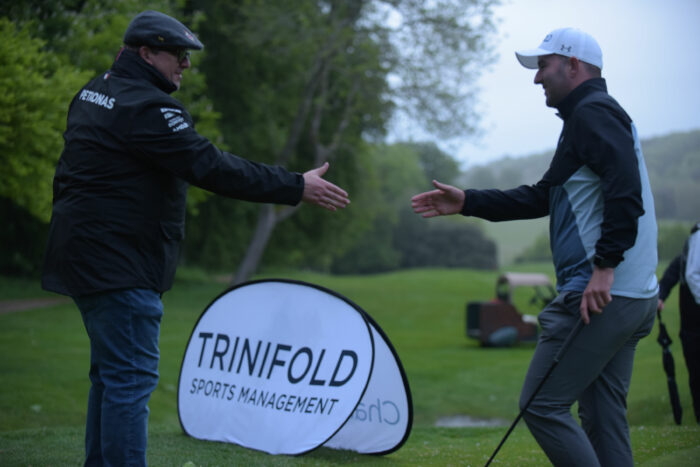
How has the business evolved since its conception as Golfing4Life? What areas are you branching into now that you perhaps weren’t five years ago?
Bill: Golfing4Life began as a charitable, not-for-profit organisation that was designed to help youngsters with talent to achieve their full potential. The fact that many of these youngsters were financially challenged in a sport that can be expensive just added to the satisfaction we felt when seeing their progress. Now with the inception of a fully-fledged management company, we have the responsibility of young golfer’s futures in our hands. What we instill in them is that there is no problem with failing if you give 100 percent to everything, because how can you celebrate success if you have never tasted failure on that journey to achievement?
With the appointment of Andrew and Tim Harman as directors, what sort of influence do they bring to the business?
Bill: With Tim and Andrew Harman joining us, we have luckily gained the expertise of two successful businessmen who built their companies from scratch. They are two people with likeminds to myself and Jimmy. They share the ethos we have to help youngsters achieve in golf, and if that doesn’t happen, to then assist and guide them in life.
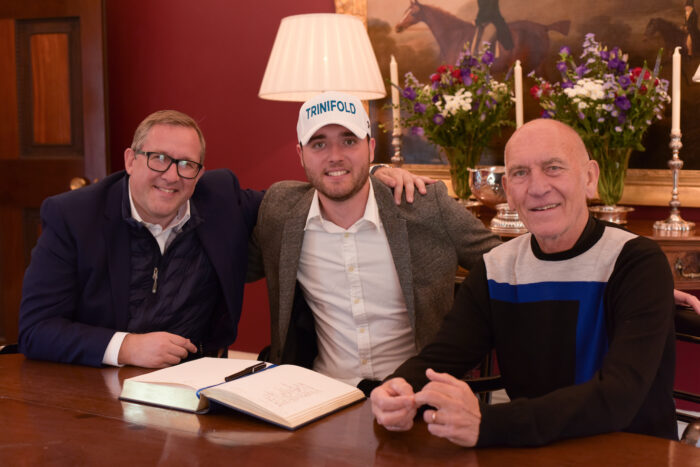
Andrew, how do you think you can support TSM, particularly within your areas of expertise?
Andrew: Being an ex-pro footballer combined with my expertise from growing a business – and all the challenges associated with that – gives me a lot of experience and knowledge of the things I did well and learning from the mistakes I made on the journey. I think passing that knowledge on can create a formula for being the best person you can be and help establish a winning mindset with a positive but humble outlook on life. That reflects the TSM ethos.
Andrew, what specifically appealed to you and your brother to drive your investment in TSM Sports?
Andrew: When Tim discussed meeting Bill and Jimmy to discuss investing in Trinifold I assumed it was about a regular golfing agency but I soon came to realise it was offering talented kids whose parents didn’t have the monies or connections an opportunity to realise their dreams and at the same time provide support in the future career regardless if they became a professional sports person as long as they worked hard.
Too often kids are discarded if they don’t make the grade and are not supported and I could see that Jimmy and Bill wanted to create something different which was about the kids becoming more rounded individuals and giving them a future on or off the golf course.
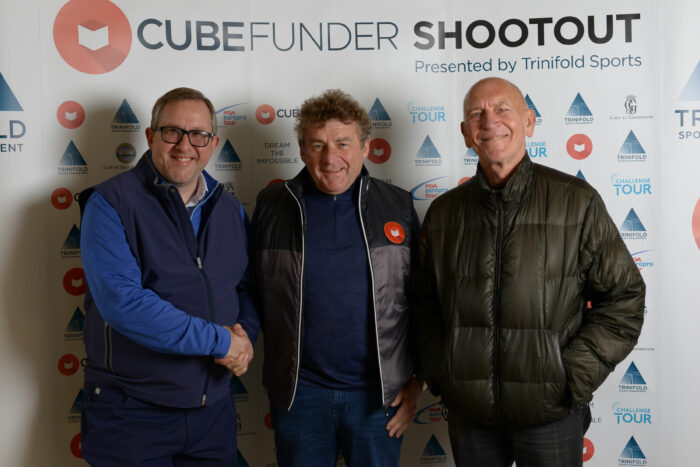
Jimmy, the diversity in expertise and knowledge across the board of directors at TSM is quite impressive. Why is this important for the business?
Jimmy: I would say very impressive! All seven of the board directors at TSM are extremely respected and highly influential. They bring innovative mindsets and a strong vision as to how we move forward as a business. Their diversity in knowledge is paramount for success, as is our combined networks to create and influence new opportunities for our clients.
The players that TSM represents reflect a younger, up-and-coming demographic in the sport, such as Lily May Humphreys and Calum Fyfe. Is this a big part of your direction as a company?
Jimmy: TSM’s ethos and focus is to create a platform for young people and give them an opportunity to achieve. So yes is the short answer. There is nothing more satisfying in any sport than to watch and help youngsters develop and succeed, regardless of their playing category or background. Reducing the stresses and anxieties of playing elite sport for our athletes and ensuring a smooth transition from amateur to professional ranks is also imperative. TSM will maintain that focus and have already signed a further six elite amateurs this year as a result.
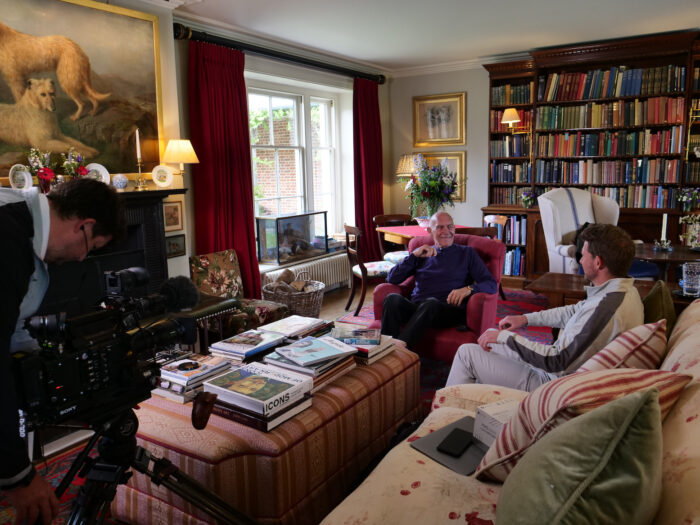
What sort of challenges and opportunities does this present to TSM when seeking support and sponsorship?
Jimmy: It all depends on the perspective of the sponsor and if they share our ethos for player development. Because most of our athletes are in the early stages of their own careers, their reach is reflective of this, which can create a question of value for the sponsor. If that is their immediate priority, then we would share our vision and build a structure for them that works for the immediate term and in the future.

You must be one of the first socially responsible sports management companies out there?
Jimmy: Young people first; golfers, footballers, tennis players and so on come after that. To deliver on this principle, it is vital that the ‘safety net’, or ‘extension of Plan A’ – whatever you want to call it – is incorporated into an athlete’s development plan. This is something that our board, partners and sponsors are passionate about.
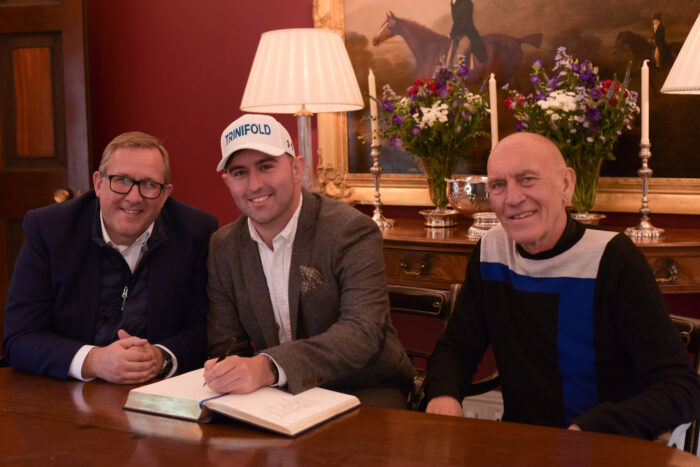
You and Bill have brought through many elite amateurs, including Walker Cup and Curtis Cup stars. What improvements can still be made to support the amateur game?
Jimmy: This topic warrants its own article entirely and for me is vitally important. Establishing clearer pathways for amateurs to gain experience in professional events is crucial and there needs to be greater transparency in how these opportunities are handed out. There should be more chances given to players succeeding in our biggest events – whether it be the Brabazon or the Lytham Trophy for example.
Shane Lowry won the Irish Amateur which gave him a start in the Irish Open. Lowry then beat Robert Rock in a play-off to win the championship as an amateur which was the kick start to his professional career. The rest is history, but what a story!
The States do it right in EVERY department and not only encourage the importance of education but also provide a transparent pathway for their collegiate seniors who perform.
Similarly, I think the World Amateur Golf Ranking does not always give the most accurate depiction of players’ standings within the game, which can affect the opportunities afforded players. Many players intentionally miss tournaments to protect their ranking.
Funding is also an issue, which should now improve with the change in sponsorship of amateurs, which has been a very long time coming.
Confidence is everything so encouragement is always key, as is remaining vigilant towards mental well-being, diversity and opportunity for all.

Corporate social responsibility is very important to your business, and you’re keen to support charitable work too. Why is this? Have the players embraced that notion of giving back?
Bill: It is vital that our young athletes understand how fortunate they are to have good health and talent, and to impress on them that life is about giving and not taking.
With that in mind, we introduce them to the Teenage Cancer Trust, so that they can see first-hand the challenges others face and understand that navigating those teenage years unscathed is a blessing. Each of our players commit four days per year to this cause and it is something we will continue to support in any way that we can.















Get them playing the game young and you have a customer for life